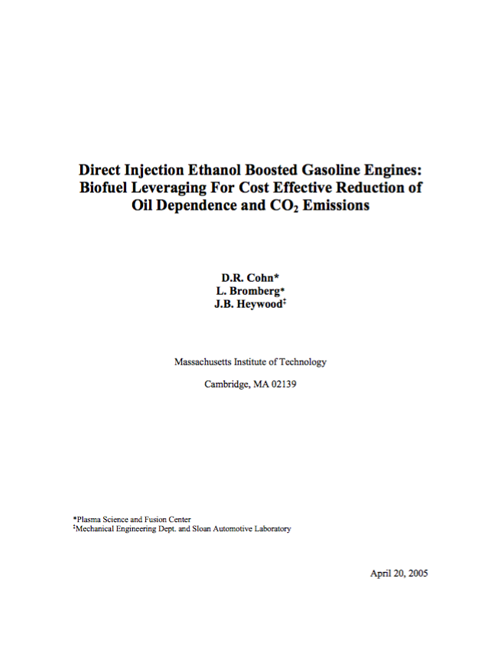
Direct Injection Ethanol Boosted Gasoline Engines: Biofuel Leveraging For Cost Effective Reduction of Oil Dependence and CO2 Emissions
Abstract
Ethanol biofuel could play an important role in reducing petroleum consumption by enabling a substantial increase in the fuel efficiency of gasoline engine vehicles. This ethanol boosted engine concept uses a small amount ethanol to increase the efficiency of use of a much larger amount of gasoline by approximately 30%. Gasoline consumption and the corresponding CO2 emissions would thereby be reduced by approximately 25%. In combination with the additional reduction that results from the substitution of ethanol for gasoline as a fuel, the overall reduction in gasoline consumption and CO2 emissions is greater than 30%. The concept uses appropriately controlled direct injection of ethanol into the engine cylinders. The direct injection provides suppression of engine knock at high pressure. This allows high pressure operation of a much smaller, highly turbocharged engine with the same performance as a larger engine. The engine can also use a higher compression ratio. The engine downsizing and higher compression ratio results in a large increase in fuel efficiency. This approach involves only modest changes to the present gasoline engine systems and fueling infrastructure. The increase in vehicle cost could be modest (approximately $600) and the fuel savings payback time could be approximately 2 years. This leveraged use of ethanol to increase gasoline engine efficiency could substantially increase its energy value and help to alleviate concerns about a low energy output/ input ratio (energy provided by the ethanol/energy needed to produce the ethanol). Thus the ethanol boosting concept can facilitate increased use of biofuel in addition to providing a cost-effective way to increase gasoline engine efficiency.